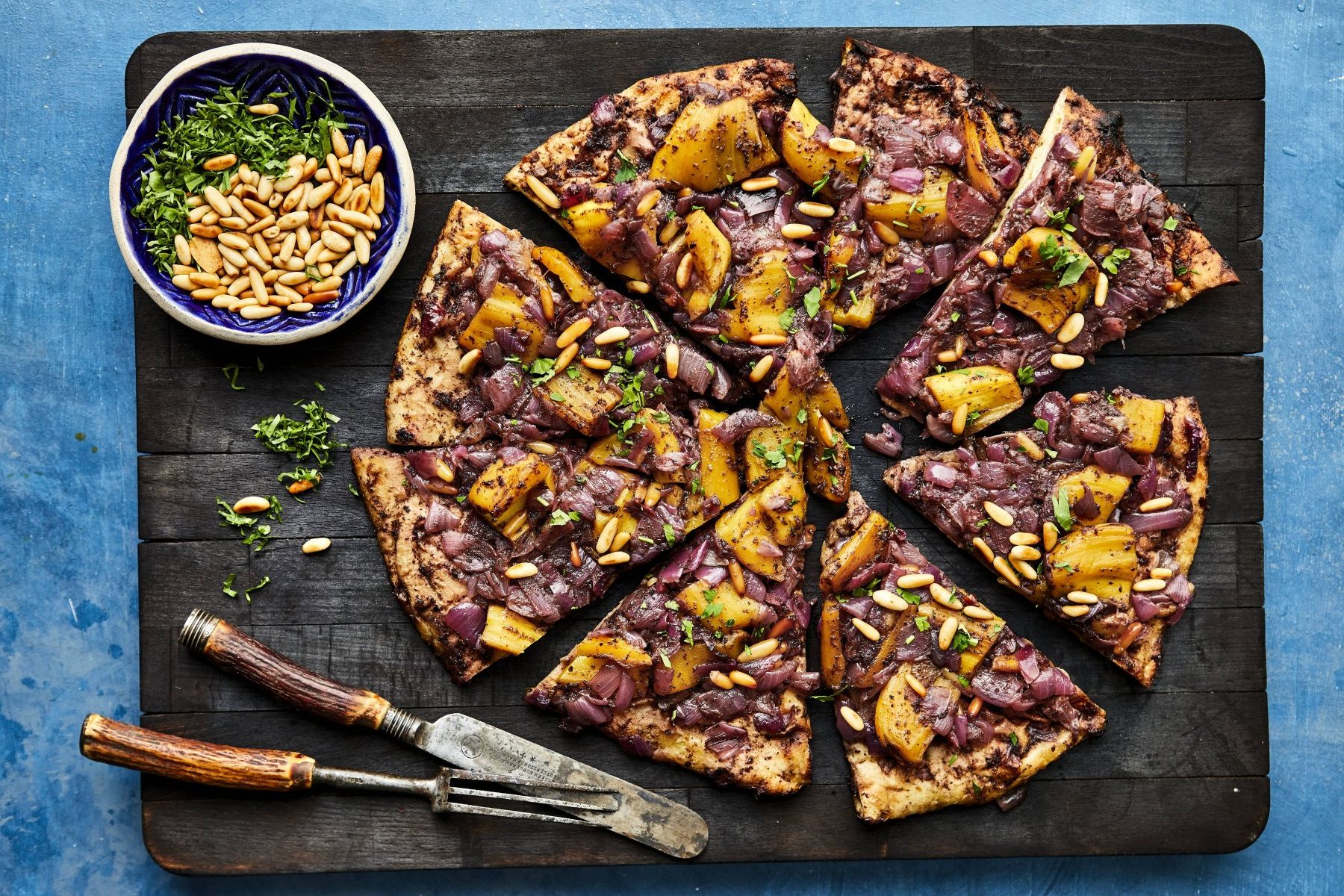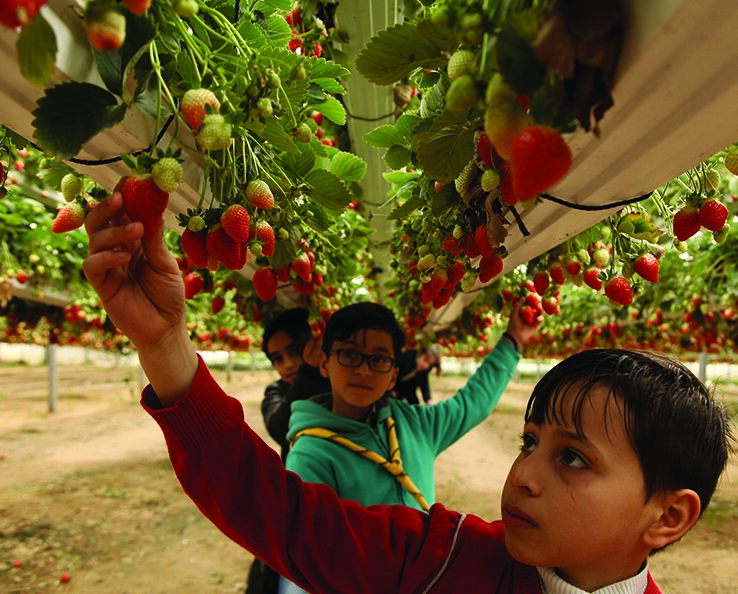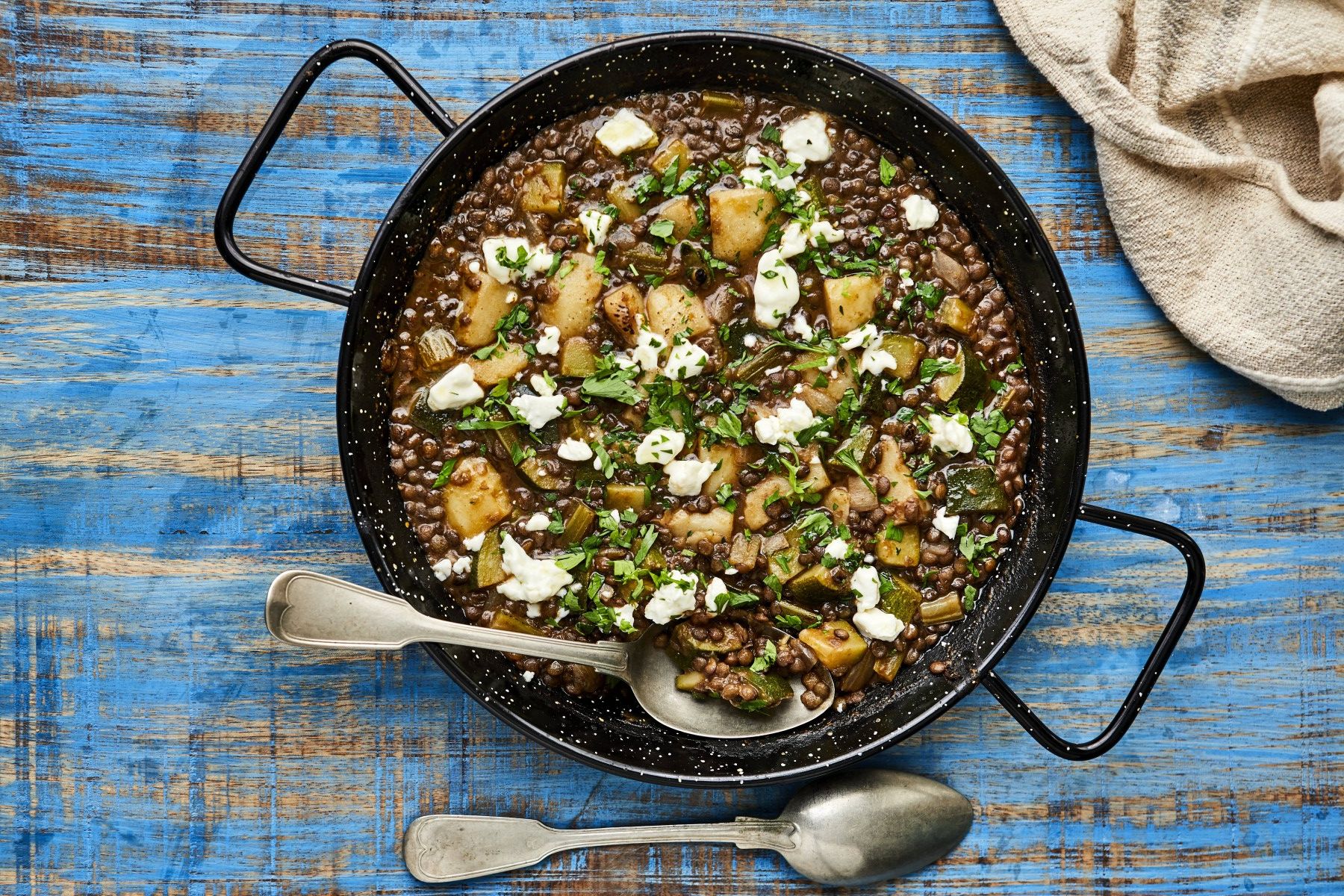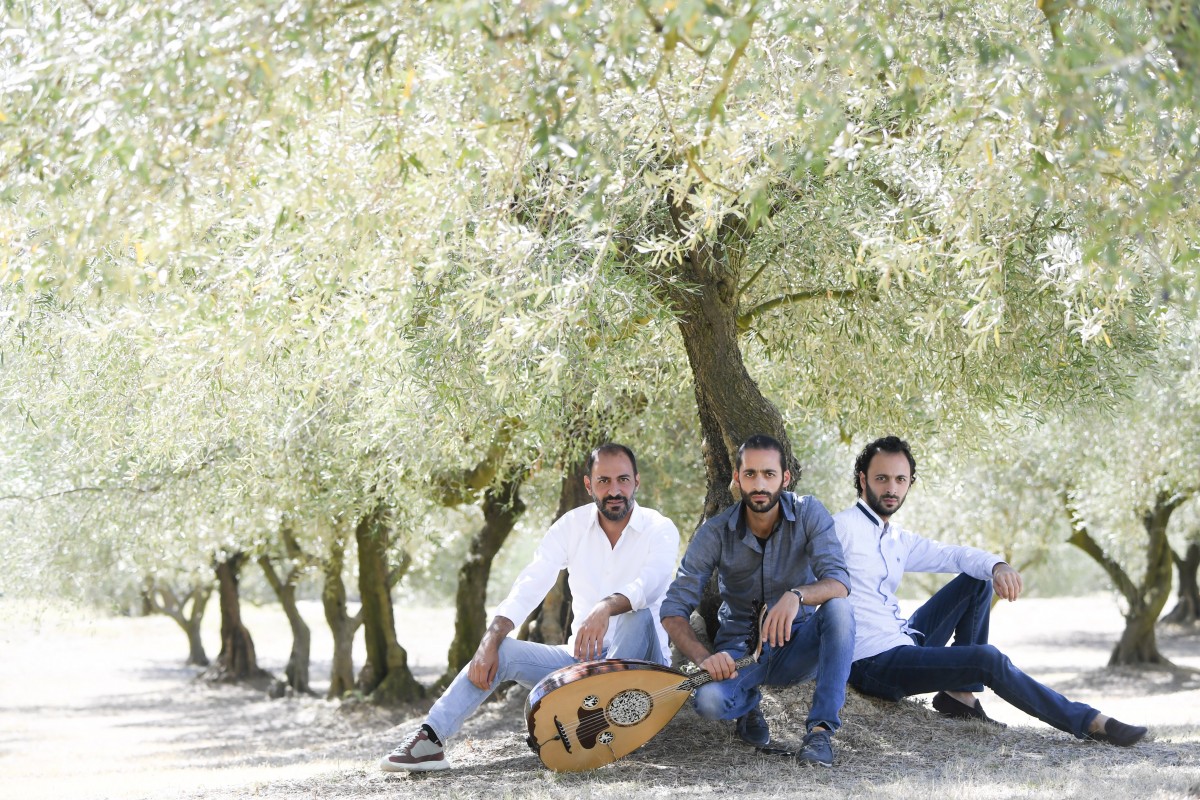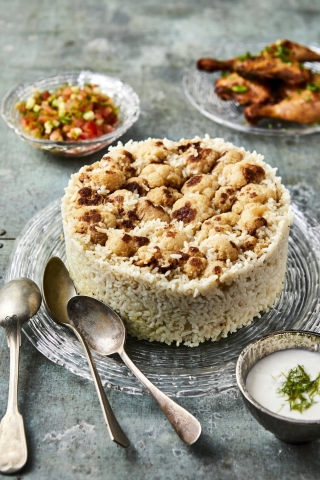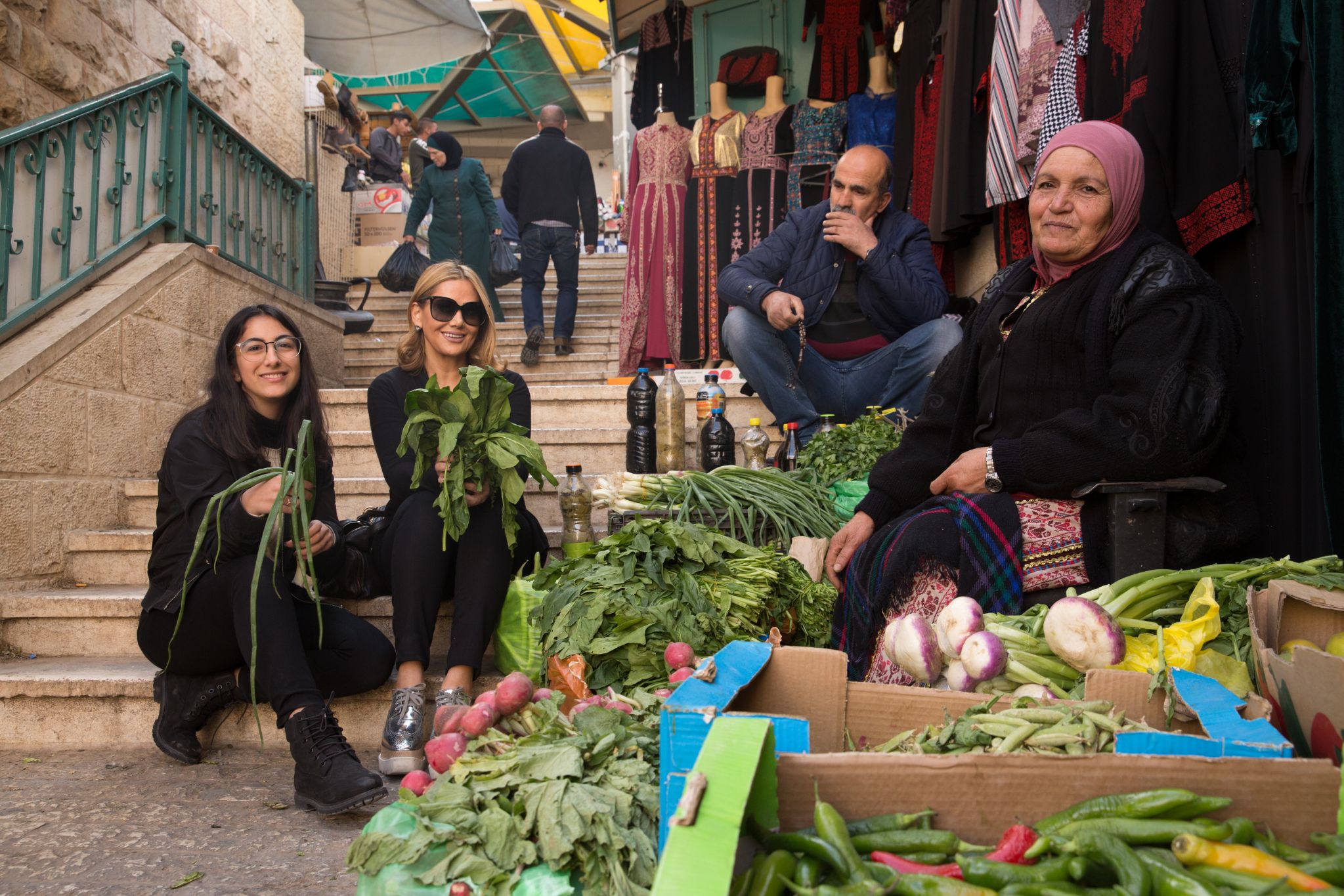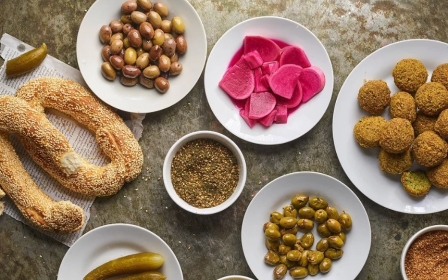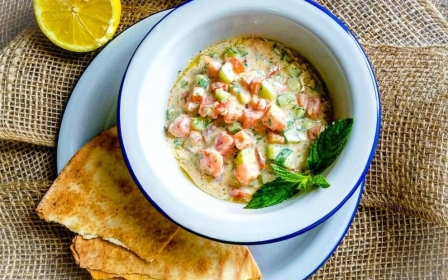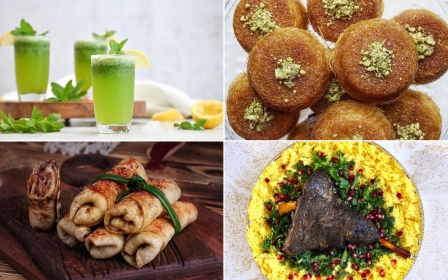Craving Palestine: Cherished recipes of a centuries-old cuisine
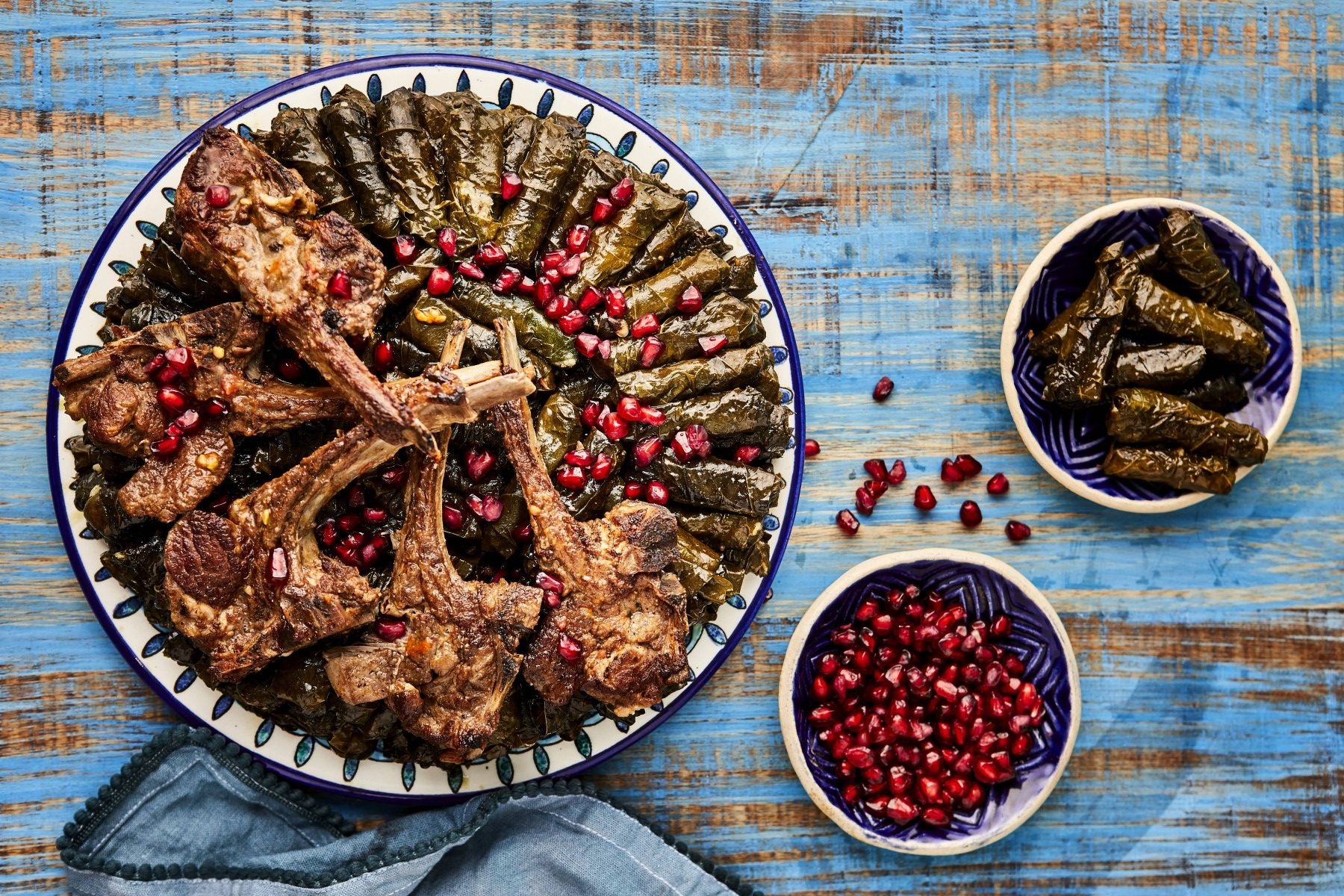
Last year, while visiting a conference in San Francisco, a number of non-Arab colleagues eagerly told me about Beit Rima, a local place that served Palestinian food. Their zeal about trying out an authentic Palestinian eatery thrilled me.
How, I wondered, has our cultural cuisine become suddenly trendy? It reminded me that we’ve come a long way from my own childhood days, when packing hummus or zaatar manoushe for lunch earned me strange looks from my classmates.
Hummus (available in so many flavours that it’s become a running joke on #arabtwitter), tabbouli, labneh, and other staples can now be found at even the most modest grocery stores.
When you have grown up hearing your ethnicity linked with terrorism, it’s a bit of shock to understand that the meals - the foods painstakingly rolled and blended at the kitchen table by your mothers and grandmothers - are now craved by your coworkers and friends.
New MEE newsletter: Jerusalem Dispatch
Sign up to get the latest insights and analysis on Israel-Palestine, alongside Turkey Unpacked and other MEE newsletters
Foodies not only want to eat Palestinian food - they want to prepare it at home as well
In the past five years, the publishing industry has seemingly “discovered” Palestinian cuisine (thankfully, it’s also been willing to label it as such). Foodies not only want to eat Palestinian food - they want to prepare it at home as well.
A number of excellent cookbooks have appeared on bookshelves, including Palestine on a Plate, The Gaza Kitchen, The Palestinian Table, Falastin, and Zaitoun.
Earlier this year, the New York Times even went so far as to publish a detailed article, “The Rise of Palestinian Food,” a title that undoubtedly triggered some head-shaking among Palestinian families. A centuries-old community whose cuisine is only now on the “rise”?
Now, a new cookbook has appeared: Craving Palestine, edited and curated by Palestinian mother-daughter duo Farrah Abuasad and Lama Bazzari. A third editorial member is Franco-Palestinian chef Fadi Kattan, who also contributed some recipes.
Craving Palestine is not quite a cookbook in the same sense as the others. Instead, it markets itself as “a global fundraising movement”.
Contributors are from across the diaspora, including Dubai, Amman, Kuwait, Lisbon and Paris. The range of contributors - including US Palestinian congresswoman Rashida Tlaib, novelist Susan Abulhawa, and film director Hani Abu-Assad - is both illuminating and extensive.
The proceeds from the sale of the “non-profit cookbook” go to ANERA, an organisation founded in 1968 to help alleviate Palestinian suffering in the wake of the 1967 war. It is known for providing relief and services to displaced and impoverished Palestinians in the West Bank and the Gaza Strip, Lebanon, and Jordan, especially those who are refugees.
While it is structured like a typical cookbook, Craving Palestine reads more like a family reunion
The editors state that the book’s profits will be focused on funding education, health and development programmes, and they hope they will “offer opportunities to Palestinian youth, bound by love and a shared humanity to make a far-reaching impact.”
While it is structured like a typical cookbook (with sections like “Soups and Stews,” “Poultry and Meat,” and “Desserts”), Craving Palestine reads more like a family reunion.
It’s a beautifully designed book, with full-colour pictures of the foods it highlights, as well as black and white headshots of the recipe contributors.
There is a “Happy House Lentil Stew” by Palestinian-American poet and novelist Naomi Shihab Nye. The stew is her father’s recipe, one he made sure to provide because of his daughter’s inclination to vegetarianism. “Meat was dead animals,” she explains in her introduction to the recipe.
Her own grandmother, the family believed, had lived a long time because they’d been too poor to eat meat, which made sense to a young Naomi: “This sounded right to me. Eat less deadness and live longer.” Nye’s father, Aziz Shihab, wrote his own cookbook, A Taste of Palestine: Menus and Memories, and the “Happy House Lentil Stew” comes from that collection.
'The only way to get back to my roots and reconnect with my heritage was to cook my own Palestinian recipes and share them with my Dutch friends'
- Hani Abu-Assad, film director and producer
There are recipes from other writers too, including poet Lisa Suhair Majaj, as well as from other creatives such as actors Maysoon Zayid and Waleed Zuaiter, and musicians including the brothers from Trio Joubran.
US Congresswoman Rashida Tlaib, the first Palestinian American woman to serve in the American House of Representatives, made her “yama” famous during her swearing-in ceremony when she wore the thobe her mother embroidered for her.
Now, in Craving Palestine, she includes her mother Fatima’s recipe for stuffed grape leaves with lamb chops: “It’s the one dish that brought all my aunts and Sity Muftieh around a table together, where we told stories and laughed as we sat and rolled leaves.”
Film director and producer Hani Abu-Assad, whose Paradise Now and Omar were both nominated for Academy Awards, includes his recipe for chicken makloubi, which he often cooked as a young man when he moved to the Netherlands and found himself missing his country and his family’s cuisine. “The only way to get back to my roots,” he explains, “and reconnect with my heritage was to cook my own Palestinian recipes and share them with my Dutch friends.”
Recipe for making Chicken Makloubi
+ Show - HideServings: 4
Ingredients
- 1 organic chicken, cut into 4 pieces
- 1 tbsp (15 ml) olive oil and also for drizzling
- 1 lemon
- Salt and pepper
- 1 medium-size cauliflower, cut into florets
- 1 onion, finely chopped
- 2 garlic cloves
- 2 cups (.5 liters) basmati rice (or any long grain rice)
- 1 tbsp (15 ml) seven-spice mix (optional)
- 1 tbsp (15 ml) ground coriander spice (optional)
- ½ cup toasted almonds
- ¼ cup chopped fresh parsley
Method
- Preheat the oven to 350°F (180°C)
- Place the chicken on a baking sheet. Rub on olive oil, lemon, salt, and pepper
- Bake the chicken for 45 minutes. Turn the chicken when the upper side becomes brown. This way you have two sides that are brown and cooked evenly
- Place the cauliflower florets on a separate baking sheet. Spray them with cooking oil and add salt, to taste. Bake in the oven next to the chicken for 25 minutes. Turn the cauliflower when the upper side becomes brown
- Boil a large pot of water and place the cooked chicken in it. Add the juices from the chicken’s baking sheet. Add in the chopped onion and garlic cloves. Simmer 5 minutes
- Add the rice and the cooked cauliflower. Place the lid on the pot and let simmer until the rice absorbs all the water and is cooked. Drain excess water
- To serve, put a large serving plate on top of the pot and turn upside down (to give you a kind of rice pilaf). Garnish as desired
Reading through the book, the reflections on living in the diaspora are palpable. It struck me how many contributors felt nostalgic about their mother’s cooking style, or the memories that the meal triggered in their thoughts. Trio Joubran’s members explain how their grandmother, who originally hailed from the village of Sirin, inspired their recipe for oven-baked Palestinian chicken: “She lived close by in Nazareth and, as soon as we smelled the aromas of this dish, we would run over and join her.”
Mohamed Hadid, a real estate developer who contributed to the book and has been actively promoting it, wrote, “Two of my recipes in this book I learnt from my mother that she learnt from her mother ... my mother cooked for everyone.”
The book documents the wonderful creativity of a traditional food as it evolves; the evolution happens because Palestinians have had to replicate a dish in a new environment, with different ingredients, or because of a change in their health standards.
Hani Abu-Assad mentions, for example, that his version of chicken makloubi involves less frying than is traditional in order to make it a healthier option for modern diets.
Craving Palestine includes a helpful resource section for those looking for the right, authentic ingredients: there is a dictionary of common ingredients, such as laban jameed, za’atar, and freekeh, as well as contact information of companies and stores that stock and sell them.
I recall my own mother visiting South Asian grocery shops to find cumin and sumac. Many Palestinians in the diaspora have had to make do with whatever was available.
For others, cooking became a way to blend Palestinian cuisines with the foods of their new homes.
Indeed, one of Craving Palestine’s most noticeable - and refreshing - features is the many ways in which diaspora Palestinians have experimented with classic recipes.
For example, food blogger and author Wafa Shami offers her take on one of her father’s favourite foods - fried cauliflower, with her Cauliflower Tacos.
“This recipe was inspired by my dad; it is a modern take on a Mexican taco but with a Palestinian twist.”
Recipe for making Cauliflower Tacos
+ Show - HideServings: 4
Ingredients:
For the Dressing:
- 3 tbsp (50 ml) water
- 4 tbsp (60 ml) tahini
- Juice of ½ to 1 lemon
- Pinch of salt
For the Tacos:
- 1 whole medium cauliflower cut into florets
- 2 tbsp (30 ml) extra-virgin olive oil
- 1 pinch of salt
- ½ tsp (2.5 ml) cumin powder
- 1 cup shredded red cabbage (optional)
- ¼ red onion (optional)
- Pickled cucumbers (optional)
- Tahini dressing
- 10 taco shells
Method
- Preheat oven to 375°F (190°C)
- Make the dressing: Add water to tahini and keep stirring, until the mix turns into a liquid paste. It will look more like a dressing
- Then add lemon and salt and adjust to taste
- Separate cauliflowers into small florets after rinsing. Mix with olive oil, salt, and cumin and spread in a baking sheet
- Bake for 45 minutes to an hour until florets start turning golden brown
- Once cauliflowers cool off, fill each taco with small florets of grilled cauliflower and your choice of toppings such as onions, pickles, and shredded cabbage, and drizzle tahini dressing on the top. Optionally, add some Palestinian Shatta hot sauce for a spicy kick
But Craving Palestine isn’t just a cookbook - it’s also a movement.
“Palestinian food is meant to be shared amongst family and friends so can be enjoyed as mezze style or as a set menu,” the editors tell us, so one of the many aspects connected to the book that celebrate a sense of community is the concept of the Supper Club, which the editorial team created through their website.
These events are hosted across the world, with a range of between 20 and 50 guests. Each attendee buys a ticket to enjoy an evening of Palestinian food, prepared according to the recipes in Craving Palestine.
These events, some of which have included entertainment (Le Trio Joubran were featured as musical guests at a Supper Club earlier this year in Dubai) have quickly sold out, and all proceeds have benefited ANERA.
In her introduction to her tabbouleh salad recipes, Lisa Suhair Majaj mentions her own life as a busy mother with little time on her hands: “I worried that my children would grow up thinking that their ethnic cuisine was pasta and frozen green peas.”
She began regularly preparing tabbouleh, learned from her grandmother and aunts, and her children have grown to love it.
Her story is a reminder that life in the diaspora holds many challenges for Palestinians; one of them is the stress of raising children in an often new and unfamiliar environment. The children may not speak Arabic, for example, or enjoy listening to Arabic music like their parents and grandparents.
Palestinian cuisine – whether it’s traditionally prepared or adapted – becomes a vehicle for passing down a love and respect for one’s ethnic culture.
Craving Palestine: A Cookbook is available from Story Farm Press, edited by Farrah Abuasad, Lama Bazzari, and Fadi Kattan
Middle East Eye delivers independent and unrivalled coverage and analysis of the Middle East, North Africa and beyond. To learn more about republishing this content and the associated fees, please fill out this form. More about MEE can be found here.


